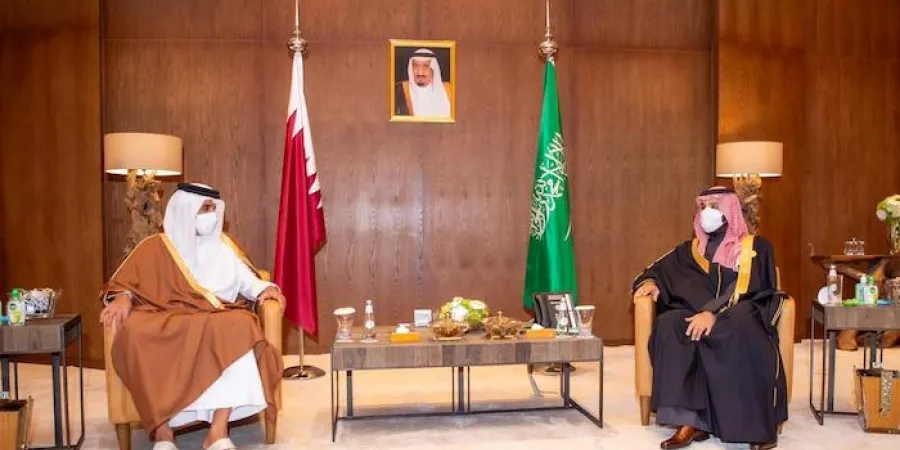Qatar: We are ready to mediate between Iran, US and Gulf states
After the Arab boycott was lifted, the ally of Tehran and Washington expresses willingness to play such a role in order to '"preserve the collective security of our region"
Mandi Kogosowski
| 24/01/2021
Qatar is ready to mediate between Iran and the US regarding the nuclear agreement, and to create a "constructive dialogue" between Iran and its neighbors in the Persian Gulf, Qatar's deputy foreign minister, Lolwah al-Khater, said in an interview with Spain's EFE news agency.
"Qatar has expressed its willingness to play such a role, yet we have to be invited by both parties, who are still hesitant to take this step, in terms of entering and engaging in direct negotiations," she said. "Iran is a geographical reality in our region and the Gulf states are a geographical reality, no one is going away, and that is why it is very important to engage in a meaningful, constructive and direct dialogue."
The deputy minister also said that Doha, which has good relations with both Washington and Tehran, played a significant role in the reduction of the regional tension after the US assassinated the commander of the Quds Force of the Revolutionary Guard Corps, Qassem Soleimani, last year. "At that point, the region was on the verge of a military escalation. Qatar back then played the role of de-escalating the situation, and then, I think, saved the region from a potential war," she said.
As previously mentioned, Qatar's close relations with Iran were one of the main reasons for the diplomatic and economic boycott imposed on Qatar in the summer of 2017 by Saudi Arabia, Egypt, Bahrain and the UAE, which accused it of supporting terror. At the beginning of this month, during a summit of leaders of Gulf states in Saudi Arabia, a reconciliation agreement was signed even though complete solidarity between the sides, which have different ideologies, is still far off.
"If it was important for the US to have a dialogue with Iran, then it is even more important for us as Gulf Cooperation Council countries to have a meaningful and constructive dialogue with Iran, one that will preserve the collective security of our region, the rights of our peoples and ensure a prosperous future for coming generations," she added.
After the Arab boycott was lifted, the ally of Tehran and Washington expresses willingness to play such a role in order to '"preserve the collective security of our region"
Qatar is ready to mediate between Iran and the US regarding the nuclear agreement, and to create a "constructive dialogue" between Iran and its neighbors in the Persian Gulf, Qatar's deputy foreign minister, Lolwah al-Khater, said in an interview with Spain's EFE news agency.
"Qatar has expressed its willingness to play such a role, yet we have to be invited by both parties, who are still hesitant to take this step, in terms of entering and engaging in direct negotiations," she said. "Iran is a geographical reality in our region and the Gulf states are a geographical reality, no one is going away, and that is why it is very important to engage in a meaningful, constructive and direct dialogue."
The deputy minister also said that Doha, which has good relations with both Washington and Tehran, played a significant role in the reduction of the regional tension after the US assassinated the commander of the Quds Force of the Revolutionary Guard Corps, Qassem Soleimani, last year. "At that point, the region was on the verge of a military escalation. Qatar back then played the role of de-escalating the situation, and then, I think, saved the region from a potential war," she said.
As previously mentioned, Qatar's close relations with Iran were one of the main reasons for the diplomatic and economic boycott imposed on Qatar in the summer of 2017 by Saudi Arabia, Egypt, Bahrain and the UAE, which accused it of supporting terror. At the beginning of this month, during a summit of leaders of Gulf states in Saudi Arabia, a reconciliation agreement was signed even though complete solidarity between the sides, which have different ideologies, is still far off.
"If it was important for the US to have a dialogue with Iran, then it is even more important for us as Gulf Cooperation Council countries to have a meaningful and constructive dialogue with Iran, one that will preserve the collective security of our region, the rights of our peoples and ensure a prosperous future for coming generations," she added.



